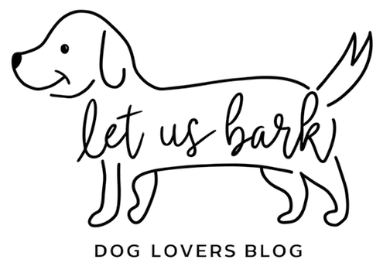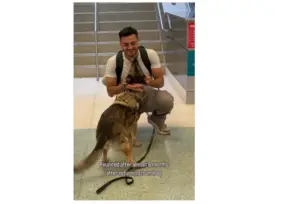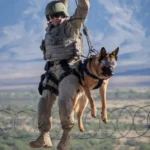After dedicating their lives to serving in the Singapore Armed Forces (SAF), many military working dogs (MWDs) are given the chance to live out their golden years in loving homes.

These canine heroes, once tasked with guarding bases and detecting threats, now enjoy the peace of civilian life, thanks to the dedication of families willing to adopt them.
Ronnie, a 13-year-old protection dog, is one such example. He served with the SAF Military Working Dog Unit (MWDU), guarding camps and airbases.
When Ronnie fell ill and could no longer continue his duties, CPL (NS) Jonathan Yew, his handler, received clearance to bring him home in 2020. This marked the beginning of a special bond, making Ronnie the first dog the Yew family ever adopted.
Adopting a retired MWD is not just about companionship—it’s about giving these dogs a second chance at life.
The Yew family went on to adopt more retired working dogs, including Merida, a German Shepherd who, like Ronnie, was trained to guard airbases. The Yews’ extended family has also joined the cause, adopting several other MWDU alumni. These dogs now enjoy regular family gatherings and lead much more relaxed lives.
Similarly, Lottie, a 10-year-old Labrador Retriever, was once a sniffer dog, trained to detect narcotics, arms, and explosives.
Today, she is a beloved member of Lieutenant Colonel (LTC) Prathap’s family. Having found a special bond with his retired nurse mother, Lottie is now a faithful companion, happily enjoying her retirement with regular walks and playtime.
Retired military dogs like Ronnie, Merida, and Lottie have gone from intense service roles to peaceful retirements, where they are loved and cherished by their new families.
These adoptions not only provide the dogs with comfort in their old age but also offer a rewarding experience for their adopters, who benefit from the companionship of these loyal, well-trained canines.
Contents
Conclusion
The story of retired military working dogs highlights the incredible transition from their days of service to finding forever homes.
These loyal companions, who once protected and served, are now living peaceful lives with families who appreciate their years of dedication. The process of adopting a retired military dog is not only a commitment to their well-being but also a way to offer these canine veterans the retirement they deserve.
FAQs
- What happens to military working dogs after retirement?
Retired military working dogs are often adopted by their handlers or families willing to provide them with a forever home, where they can live out their golden years in comfort. - How do families adopt retired military dogs?
Interested families must go through an adoption process, which includes ensuring the dog can bond with the adopters and adjust to civilian life. - What types of duties did these dogs perform during their service?
Military working dogs are trained in various roles, such as protection, narcotics detection, and guarding airbases, helping to keep military personnel safe. - Do retired military dogs require special care?
Yes, many of these dogs are older and may need extra care due to age-related health issues, but they are typically well-trained and easy to care for. - Can anyone adopt a retired military dog?
Adopting a retired military dog requires commitment and understanding that these dogs may not have many years left, but they can still provide unconditional love and companionship. - What is life like for a retired military dog in their new home?
Retired military dogs, like Merida and Lottie, enjoy a peaceful life filled with leisurely walks, playtime, and companionship, often forming strong bonds with their new families.







